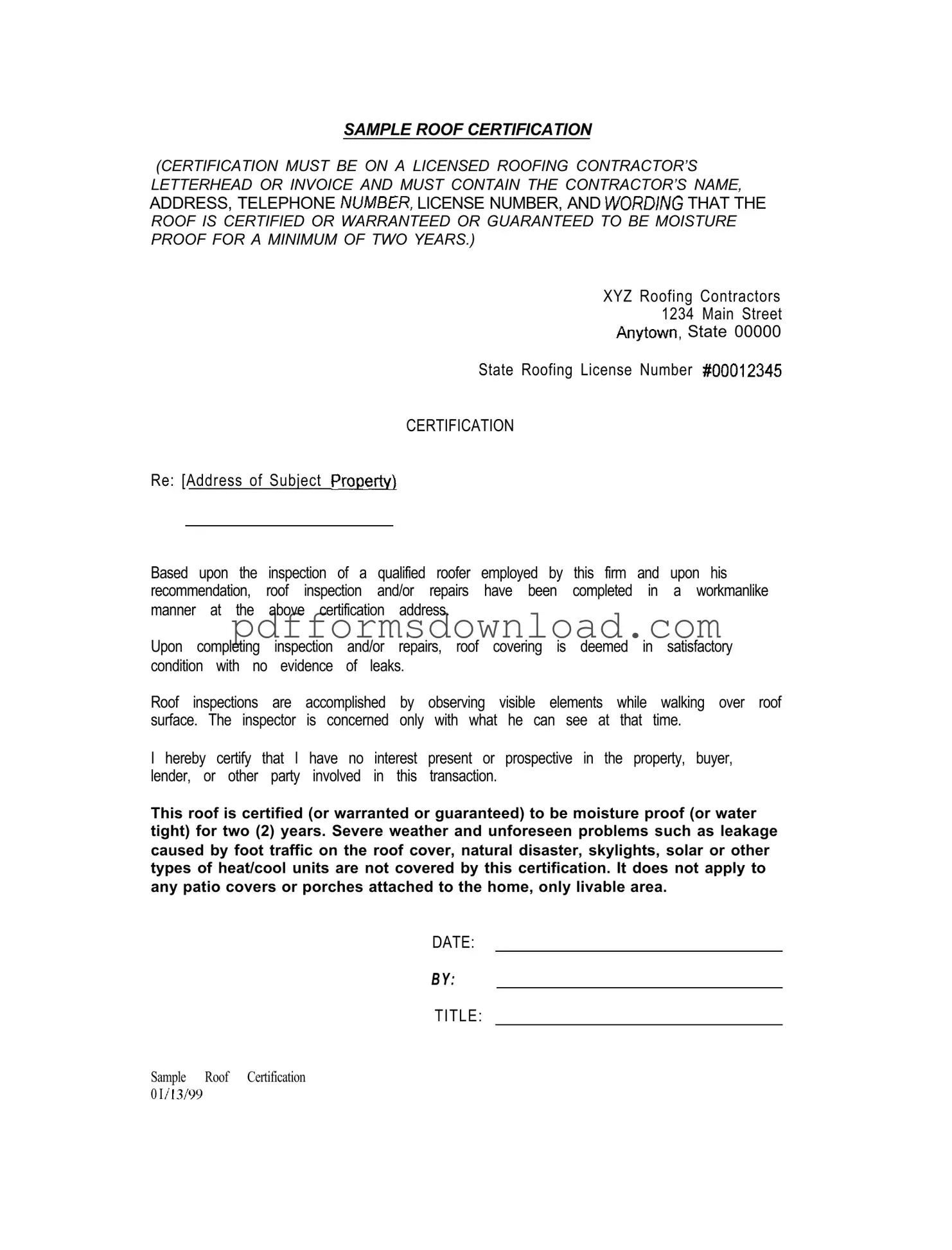Download Sample Roof Certification Template
The Sample Roof Certification form serves as an official document provided by a licensed roofing contractor, confirming that a roof has been inspected and meets specific standards for moisture protection. This certification, which must be printed on the contractor's letterhead, includes essential details such as the contractor's name, address, and license number, along with a guarantee that the roof is free from leaks for a minimum of two years. If you are ready to ensure your roof's integrity, please fill out the form by clicking the button below.
Make This Document Now

Download Sample Roof Certification Template
Make This Document Now

Make This Document Now
or
Free PDF File
Your form is almost ready
Complete your Sample Roof Certification online — edit, save, and download easily.